The Society for Armenian Studies (SAS) has chosen its awardees for the SAS “Graduate Research and Conference Grants Program for M.A. and Ph.D. Students” for Fall 2020.
Established in 2019, the aim of the Grant Program is to provide resources for graduate students to conduct research and present papers at conferences. Grants of up to $500.00 are awarded semi-annually to eligible graduate students. The inaugural group of applicants was chosen by a selection committee composed of members of the SAS Executive Council.
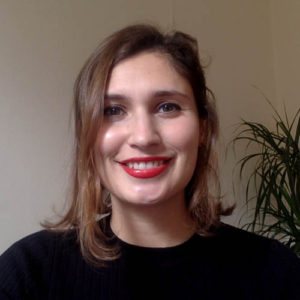
Irem Gülersönmez
Irem Gülersönmez is a PhD student in the Department of History of Art at Birkbeck College, University of London. She is working on the historical imagery of violence of the late 19th and early 20th century Ottoman-Armenians, who became victims of numerous massacres prior to the Genocide. She applied for a travel grant in order to present a paper entitled “Witnessing the Catastrophe: A Case Study of the German Consulate in Erzurum in 1915” at the Middle East Studies Association Annual (MESA) Conference held November 14-17, 2019, at the Sheraton New Orleans, Louisiana.
“The SAS grant allows me to attend the prestigious MESA conference where I will have the opportunity to share my research with a wide range of scholars of Armenian and Ottoman studies, as well as specialists in the field of visual studies,” said Gülersönmez.
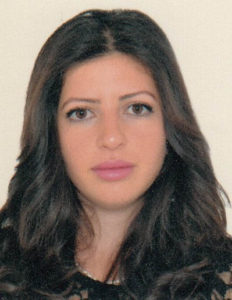
Sose Grigoryan
Sose Grigoryan is a PhD student in the Institute of Archaeology and Ethnography of National Academy of Sciences, Republic of Armenia. The topic of her study is “A Religious Culture of Armenian Catholics,” which presents holidays, rituals, weddings, and funerals in the South Caucasus, particularly in the Shirak, Lori regions, as well as Catholic Armenians living in Javakhk, Georgia. She applied for a travel grant in order to conduct research in all the Armenian Catholic villages of Georgia.
“An SAS fellowship will enable me to pursue my goals and continue my academic research and visit all of the Catholic communities. I will have an opportunity to have meetings and conversations with the population of these places and gather valuable information about their old and new ways of life, rites, celebrations, and other activities. I will attend their weddings, burial and funeral rites, and will conduct interviews with their elder population,” said Grigoryan.
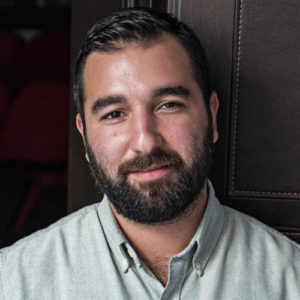
Varak Ketsemanian
Varak Ketsemanian is a PhD candidate in the Department of Near Eastern Studies at Princeton University. Ketsemanian works on late Ottoman history with a particular focus on the internal administration of the Armenian community. His dissertation focuses on the development of constitutional practices and bodies among Armenians in the provinces, and their impact on inter- and intra-communal relations. He applied for a travel grant in order to present a paper entitled “The Armenian Constitutional Order in the Late Ottoman Empire: A Framework for Analysis” at a workshop in Istanbul on “Constitutionalism in the Ottoman and Qajar Empires in Istanbul.” The workshop will take place at the Institut Français d’Études Anatoliennes on January, 16-17, 2020.
“With the generous support of the Society for Armenian Studies, I will be participating at a workshop called ‘Histories of Constitutionalism in the Ottoman and Qajar Empires, ca. 1850-1911,’ organized at the Institut Français d’Études Anatoliennes in Istanbul in January 2020. As a PhD candidate working on Ottoman-Armenian constitutionalism, this will be a great opportunity to put my dissertation project and archives in discussion with the broader intellectual and social currents of the period. Thus, the SAS fellowship is essential as it provides me with an access to an academic community where I would be able to present my work to a larger scholarly audience and get the necessary critical feedback,” stated Ketsemanian.
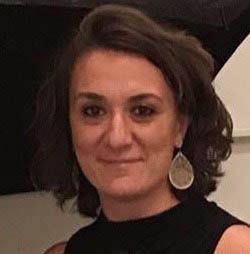
Garine Palandjian
Garine Palandjian is a PhD Candidate in the Educational Policy and Evaluation Doctoral Program at Arizona State University, in Tempe, Arizona. She is working on a dissertation entitled “Rethinking Borders and Identities in Armenian Education.” She applied for a travel grant in order to conduct research in Istanbul on how borders—and memories of bordering practices and experiences—redefine education and identities.
“It is a great honor for me to be a recipient of the Society of Armenian Research and Travel Grant 2019. The SAS scholarship allows me the opportunity to realize my personal and academic goals in conducting my dissertation fieldwork for my dissertation. I look forward to conducting fieldwork for my dissertation, ‘Rethinking Borders and Identities in Armenian Education’ in Istanbul, Turkey in February 2020,” said Palandjian.
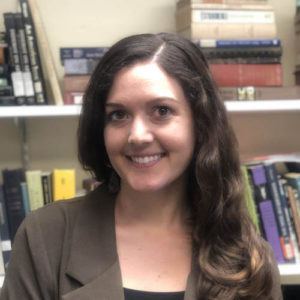
Megan Dixon
Megan Dixon is an MA student of History of Art and Architecture at Tufts University. She applied for a travel grant in order to present a paper entitled “’You Shall Surround Me with Songs of Deliverance’: Liturgy and the Promise of Salvation at Aght‘amar” at the “Visualizing Sound & Silence in Art & Architecture” 45th Annual Cleveland Symposium, Case Western Reserve University and the Cleveland Museum of Art, Cleveland, Ohio.
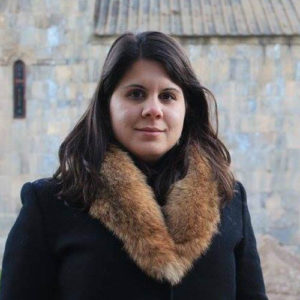
Leah Marangos
Leah Marangos is a second-year PhD student in the Department of Art History at the University of California, Los Angeles. She completed her Bachelor of Arts in Art History and Classical Civilizations at Fordham University and her Masters of Arts in Art History and Cultural Heritage and Preservation at Rutgers University. Her research focuses on Late Byzantine art and its impact on Early Modern Greece as well as 13th-century Armenian art and architecture. She has applied for a travel grant in order to conduct research at the Church of St. John at the monastery of Gandzasar in the autonomous region of Nagorno Karabagh, Armenia.
“The funding provided by the SAS Grant will allow me to travel and present my paper on Aght‘amar at the 45th Annual Cleveland Symposium. Not only will this opportunity allow me to develop my skills and experience as a young art historian, it also makes possible the privilege of highlighting a beloved Armenian monument at this reputable conference. The increasing financial pressures of higher education, particularly within the humanities, is a growing obstacle for graduate students. It is because of the generosity of groups such as the Society for Armenian Studies that students such as myself may continue to research and contribute to the academic fields we are passionate about,” said Marangos.
“We were pleasantly surprised with the number of the applicants this year,” noted SAS President Bedross Der Matossian. “The pool represented highly qualified candidates who are conducting novel research on different aspects in the field of Armenian Studies. This is testimony that more and more young-generation scholars are delving into uncharted territories within the field of Armenian Studies. The aim of SAS is to increase the dollar amount of the grants in order to be able to fund more graduate students. I urge the community to support the SAS graduate grants by donating to the Society or establishing named grants.”
The next application cycle will have a deadline of April 1, 2020.
The SAS Graduate and Research Grant was made possible through the generous institutional support of the Armenian Studies Program, University of Michigan, Ann Arbor; the Armenian Research Center, University of Michigan, Dearborn; the Meghrouni Family Presidential Chair in Armenian Studies, University of California, Irvine; the Hovannisian Chair of Modern Armenian History, University of California, Los Angeles; the Arthur H. Dadian and Ara Oztemel Chair of Armenian Art & Architecture, Tufts University; the National Association for Armenian Studies and Research (NAASR); the Armenian Communities Department, Gulbenkian Foundation; the Armenian Studies Program, California State University, Fresno; the Robert Aram, Marianne Kaloosdian and Stephen and Marian Mugar Chair in Armenian Genocide Studies, Clark University; the Armenian Studies Program, University of California, Berkeley; and the Institute of Armenian Studies, University of Southern California.
The Society of Armenian Studies is an international body, composed of scholars and students, whose aims are to promote the study of Armenian culture and society, including history, language, literature, and social, political, and economic questions; to facilitate the exchange of scholarly information pertaining to Armenian studies around the world; and to sponsor panels and conferences on Armenian studies.
For membership information or more information on the Society for Armenian Studies, please visit the SAS website, at societyforarmenianstudies.com.

